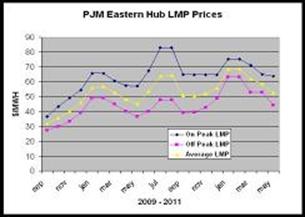
|
A Perspective |
Some outsourcing may be prudent to achieve all that is necessary. |
|
“Energy management” requires a comprehensive approach. |
|
Before deregulation, Energy Management was basically Utility Management, being predominantly utility and technical in nature, and the basic province of engineers and or utility systems managers.
Today, Energy Management is much more complex and multifaceted in nature than ever before as it encompasses an ever-growing number of aspects. Its professionals and staff comprise a wide variety of disciplines including engineering, procurement, law, environment, finance, and all of us . All are required to help manage the impact of new and ever changing technical, commercial and legislative issues in an effort to attain energy budgets and goals while also managing environmental impact issues. It is therefore better termed Comprehensive Energy Management. And since each professional involved may have their own discipline’s perspective of what the nature of Energy Management is, it is necessary that an entity assure that a synergistic response results from the team’s individual actions.
Based on how large of role energy plays in overall operating expense, each company must decide on how it will provide and integrate the team members required to meet today’s Comprehensive Energy Management function. But because most companies, for competitive reasons, must focus on mastering and improving their product lines, it may not be practical or advisable for a company to try to perform all of the necessary functions required to procure, deliver and efficiently use energy products as well as meet environmentally driven concerns and requirements. Many find it makes good sense to outsource or seek assistance on at least those energy management functions that are not strategic in nature. Aligning oneself with unbiased providers with well rounded experience is essential.
Some energy management functions that should be supervised and remain internal to a company include: Overall strategy development and planning Risk management philosophies and strategies Opportunity development programs Non-NAESB contract negotiations Selection and management of services providers Involvement in regulatory and legislative initiatives
In performing these functions, the energy professional within a company can/should use advisory services as necessary, but ultimate decision authority should be within the company.
Examples of energy management services that may no longer be practical to be performed internally and can be out-sourced include: Procurement of energy commodities on periodic basis through NAESB arrangements Daily volume management on natural gas and electricity systems Execution of risk management strategies Opportunity analysis Record keeping, report generation Invoice consolidation and reconciliation Execution of efficiency improvement efforts Assistance with and advisement on efforts “Out of the box” thinking
All things considered, the service provider should become an extension of the internal energy management staff and work closely to create a cohesive team. The service has to be seamless and yet flexible to accommodate changing management requirements, market conditions, regulatory compliance, and, most all, biased only to the end-user’s benefit. |
|
The ever-changing market |




